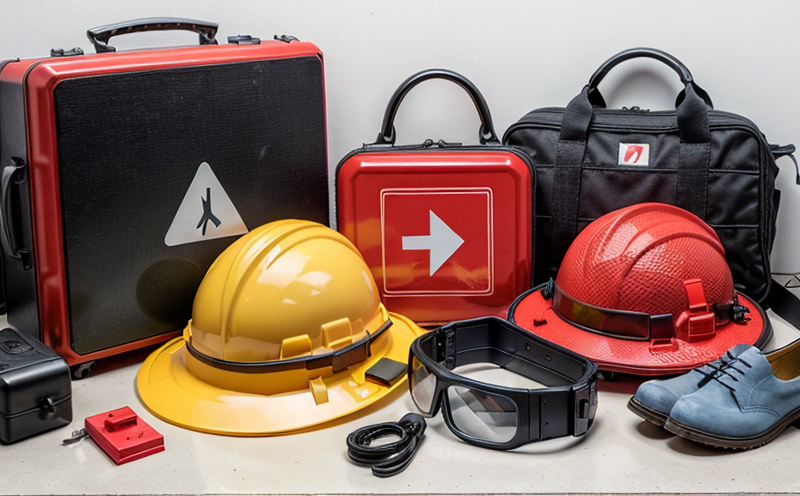EN 379 Welding Filters in Emergency Helmets Optical Quality Control
The European Standard EN 379 specifies the performance requirements and testing methods for welding filters used in emergency helmets. This service ensures that these filters meet the stringent optical quality control criteria, protecting workers from harmful ultraviolet (UV) and infrared (IR) radiation during welding processes.
Our laboratory adheres to this standard to guarantee the highest level of protection for personnel engaged in high-risk environments such as construction sites, shipyards, or manufacturing facilities where welding activities are common. The testing procedure is designed to simulate real-world conditions, ensuring that the filters perform optimally under stress and varied environmental factors.
The process begins with the selection of appropriate specimens for testing, which include various types of welding helmets equipped with EN 379 compliant filters. Specimen preparation involves careful cleaning and alignment to ensure consistent results across all tests. Our team then proceeds to conduct rigorous optical quality control checks using advanced spectroscopy equipment.
The testing parameters are meticulously defined in accordance with EN 379, focusing on the filter's ability to block harmful UV and IR radiation. We employ specialized spectrometers capable of measuring transmission rates across different wavelengths accurately. This ensures precise determination of how much light passes through the filter at various points.
Post-testing analysis involves detailed examination of the collected data to ensure compliance with specified limits outlined in EN 379. Any deviations from these standards are meticulously documented and reported back to our clients immediately. Our reports provide comprehensive insights into any areas where improvements could be made, helping manufacturers enhance their products continuously.
By partnering with us for EN 379 welding filter testing services, you can rest assured that your emergency helmets meet the highest safety standards required by international regulations. This not only enhances worker safety but also contributes positively to your company’s reputation as a leader in occupational health and safety practices.
International Acceptance and Recognition
- The European Standard EN 379 is widely recognized across Europe, ensuring compatibility with other international standards like ISO 16825 and ANSI Z87.0.
- Many countries outside Europe have adopted similar regulations for welding helmets, making compliance crucial for global market access.
Competitive Advantage and Market Impact
- Compliance with EN 379 enhances brand reputation and customer trust, which are key differentiators in competitive markets.
- Meeting these stringent requirements allows manufacturers to sell their products internationally without additional compliance costs or delays.
Eurolab Advantages
Our laboratory offers unparalleled expertise in EN 379 testing, providing accurate results that are essential for maintaining compliance with international standards. With years of experience and state-of-the-art facilities at our disposal, we deliver reliable optical quality control assessments tailored specifically to the needs of your products.
We pride ourselves on offering quick turnaround times without compromising on quality. Our experienced staff ensures that every aspect of testing is conducted rigorously, ensuring you receive dependable test results promptly. Whether you're looking for initial certification or ongoing quality assurance support, Eurolab stands ready to assist you in achieving your goals efficiently.





